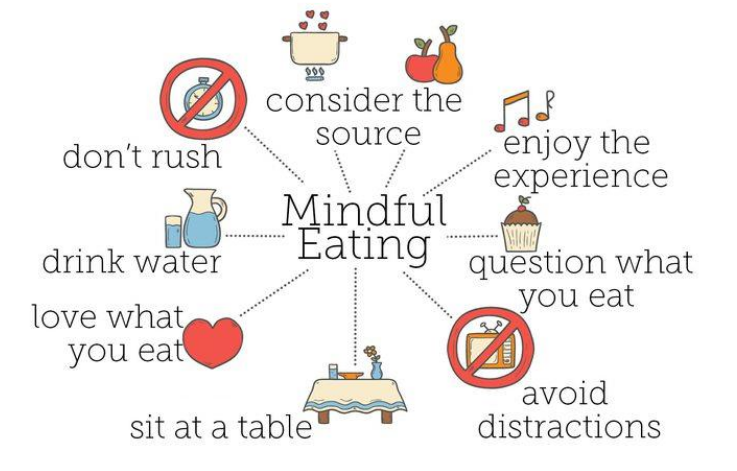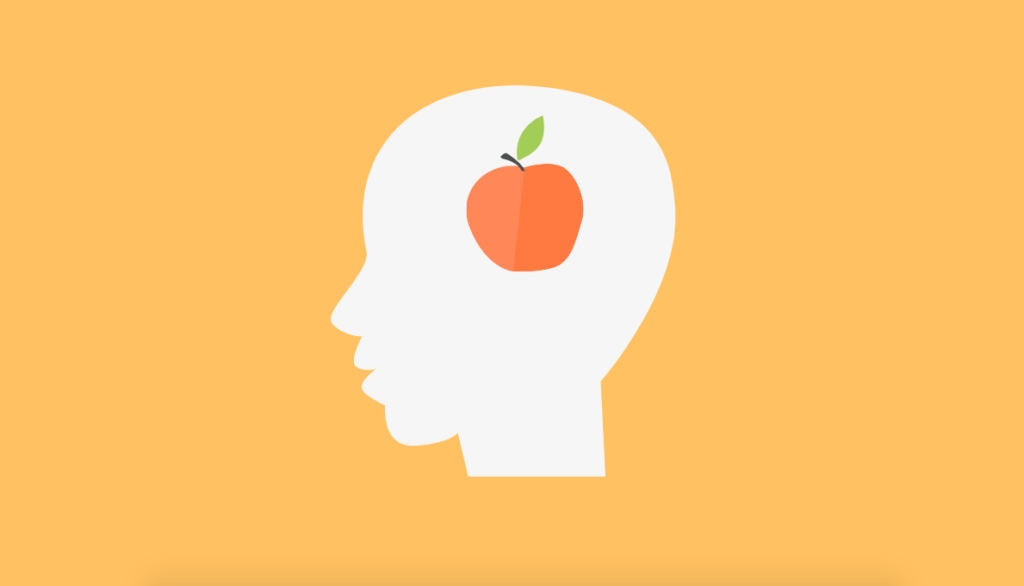Mindfulness has been a popular practice these days especially when the majority are required to stay inside their homes. One way of practicing mindfulness is through mindful eating. Mindful eating is one of the powerful ways of meditating by focusing on your food. We listed down books that are proven to work and can help you during your mindful eating journey.
Mindful Eating
Mindful eating is a practice of mindfulness. It was said that this concept was from the Buddhist. It is a known form of meditation that will help you recognize your emotions and feelings properly and cope up with it by combining food and meditation. During Mindful eating, one is expected to put their full focus on the process and experience when eating. Mindful eating involves:
- Eating slowly.
- Minimizes distractions prior to starting.
- Listening to the cues of your body for hunger.
- Eating only until you are full enough.
- Distinguish true hunger from non-hunger triggers for eating.
- Engaging your senses by focusing on what you see, what you smell, the sound you make, the flavor and the texture of the food.
- Coping with your problems that is the cause of your anxiety with food.
- Eating properly to maintain overall health and well-being
- See how the food affects your feelings and even your figure.
- Appreciate the food you are eating.
Mindful Eating Books
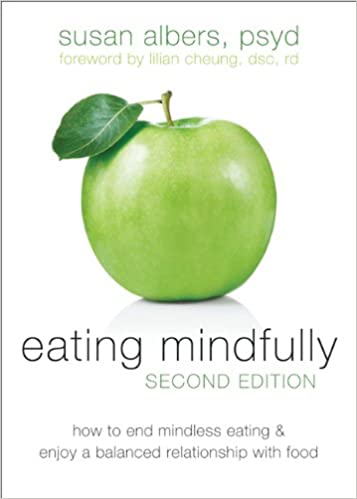
1. Eating Mindfully By Susa Albers Psy.D
The book is currently on its 2nd edition. It is one of the first books written regarding mindful eating that was created for the view of a psychologist who is practicing her profession. All the writings on the book were based from her experiences in the clinics, real-life stories and even research.
2. Body Kindness: Transform Your Health From The Inside Out – And Never Say Diet Again By Rebecca Scritchfield
Food diet may have been one of your choices when it comes to losing weight but some who researched thoroughly may find themselves looking at books about mindful eating. Unlike the others, this book explores many facets of self-care and support one’s journey to heal with the use of food. It is explained through a conversational way where you will feel like you’ve been talking to her seriously with your struggle and problems in life. The author, Rebecca, has been a practicing counselor for years and this will be seen in her book as she shares her experiences and personal stories.
3. Intuitive Eating: A Revolutionaty Program That Works By Evelyn Tribole And Elyse Resch
This book is not just about mindful eating, but it is a more intuitive way of eating. Intuitive eating is more of a process of changing how you view food and eating. It tells the readers how intelligent the human body is and how it doesn’t need the measurement, calorie counting, weight taking to achieve the healthy body that you want. Listening to your body may be the best way of understanding it and following its desires may lead you to your healthiest self. The facts stated in this book are also backed up by science, not just another hearsay or a story made up by the authors.
4. Mindless Eating: Why We Eat More Than We Think By Brian Wansink
Mindful eating is better understood when you learn about mindless eating. Brian Wansink was dubbed as “The Sherlock Holmes of Food” because of his fascinating and clever ways with food. He shared it on this book where he focuses on the mindless eating environment and researches regarding how the groceries, restaurants, and other products mindlessly lead us into eating more than we think we already do. The book has also scientific evidence which validates all of the authors claims.
5. Eat What You Love, Love What You Wat With Diabetes: A Mindful Eating Program Thriving With Prediabetes Or Diabetes By Michelle May MD
Unlike the other books who catered to the general population, this book on mindful eating focuses on people who are prone to acquiring diabetes, are pre-diabetic and those who are diagnosed with diabetes. Michelle May is a practicing doctor and has a first-hand experience with these patients. She knows best how important the mind is in having the discipline and achieving the goal of a healthy self.
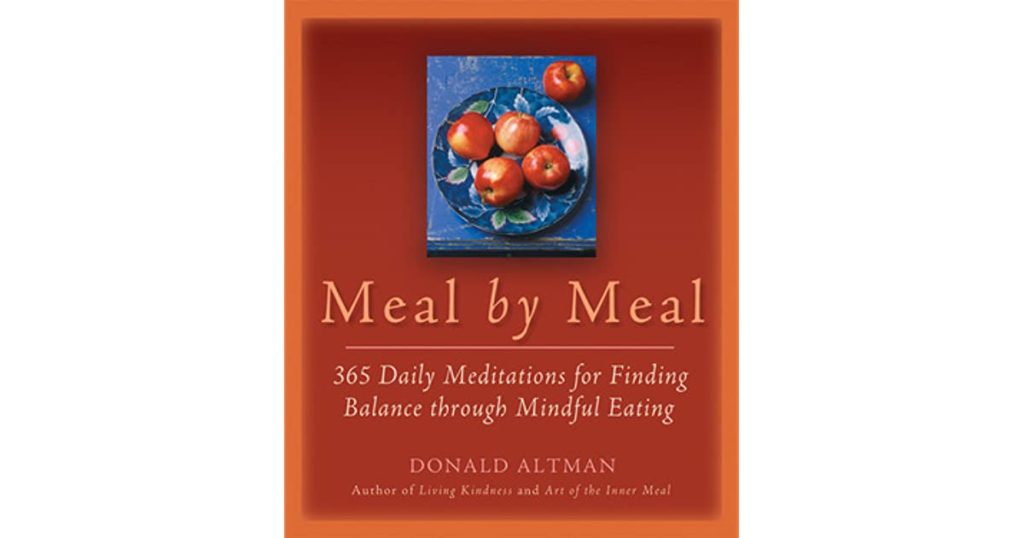
6. Meal By Meal: 365 Daily Meditations For Finding Balance Through Mindful Eating By Donald Altman
It was said that mindful eating is a Buddhist concept. Donald Altman is not only a practicing psychotherapist but also a former Buddhist monk. He was able to incorporate the knowledge and practices of Buddhism in his book. It does not only provide a year worth of daily meditations but also provides inspirational quotes and tips on mindful eating.
7. Harvest For Hope: A Guide To Mindful Eating By Jane Goodall, Gary McAvoy and Gail Hudson.
These trio are renowned scientist who take a hard look at the food that we produce and eat. They were able to incorporate the science of eating to changing the individual and the environment positively. They also looked at how the making of food and products has a factor in achieving a good mindfulness.
8. The Self Compassion Diet By Jean Fain MSW
It may say the word “Diet” in the title but it is not really a diet book. It is a compassionate book on mindful eating where self-compassion was used as a great factor in eating mindfully. Jean Fain is not only a psychotherapist but also a teacher at Cambridge Health Alliance. Like the others, she shares her knowledge and experiences in handling patients in her book.
9. The Joy of Half a Cookie: Using Mindfulness to Lose Weight and End the Struggle with Food by Jean Kristeller, PhD
The author’s Mindful Eating Training programs shows how mindfulness techniques can transform your relationship with food. The book is filled with different effective practices that will lead you to healthier choices with food. It is also a tool to help you “tune in to your own hunger experiences” and begin your journey to awareness and mindful eating.
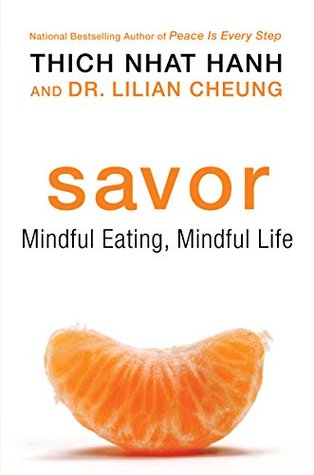
10. Savor: Mindful Eating, Mindful Life by Thich Nhat Hanh and Lilian Cheung
Thich Nhat Hanh is a renowned Zen Buddhist master which Lilian Cheing is a Harvard nutritionist. This powerful duo collaborated to make this book on mindful eating. It is what everyone is hoping for: a mix of mindfulness and proper nutrition. It does not only teaches you to achieve full awareness when eating but also pay attention to your eating habits to eat healthier. They were also able to put some healthy alternatives to the popular food and practical exercises on mindful eating.
Let us know if you read any of this book and found your way to better health. Mindful eating is a practice of the mind and the body and is not a diet regimen.


